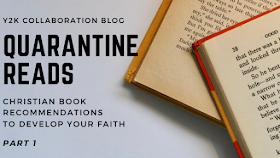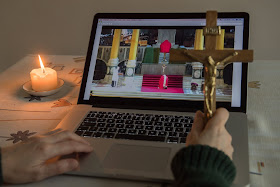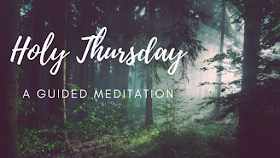Growing up as a girl in a Catholic
environment surrounded by religious sisters and married couples with huge
families, certainly had its impact on me. Seeing the beauty of these callings
aroused a desire within me to seek out my vocation. A vocation was something
that excited me, knowing that God had a wonderful plan for me; a plan for me to
prosper (Jeremiah 29:11).
However, like many young women my age that
feel called to discern marriage, my life soon began to revolve around finding
“the one”. Every church I entered - maybe today! Every Youth 2000 event - maybe
this time! Every Catholic guy - maybe him! My day-to-day thoughts became
centered upon the idea that my life would not be full until I found “the one”.
This process became exhausting - and clearly wasn’t getting me anywhere.
I soon confided in some friends at the Leeds
Youth 2000 event about my frustrations surrounding this and, as young Catholic
women, they of course quickly empathized. They prayed with me, asking that
Jesus be the king of my heart, and that anything else that had been enthroned
there in place of Him would go. Then, one of them revealed to me that this
year, after some hurt she had experienced in the dating area, she had decided
to “date Jesus”. This meant she would focus all the attention she would have
focused on a boyfriend, instead, on Jesus. Shock and inspiration simultaneously
gripped me as I contemplated her brave choice. I thought - but surely only
nuns see Jesus in a romantic way? I desire to be married, I can’t be in love
with Jesus and my future spouse? However, as I contemplated this idea I
felt convicted of Jesus’ desire for my whole heart, not just part of it,
as the prophet Joel says, “But now - declares the Lord - come back to me
with all your heart” (Joel 2:12).
I told my sister and my friend about this idea
and they were convinced; we made the radical decision to “date Jesus” for Lent.
Our relationship status had been changed. This meant we would spend time with
Jesus not because we were obligated to, but because we wanted to. My time with
God wouldn’t be filled with the next regimented prayer; instead it would be
spending time just for the sake of spending time with Jesus.
After beginning dating Jesus, my perception of myself and how God saw me began to grow deeper. When I would look in the mirror first thing in
the morning, or just before I went out, I would know that Jesus was looking at
me in admiration, saying ‘You are wholly beautiful, my beloved, and without
a blemish’ (The Song of Songs 4:7). When I walked outside I would
admire the creative hand of God, letting him romance me as he says “I made
these just for you” (Genesis 2:29). And most importantly, my worth
would not come from the next guy who would look at me, or from the idea of
being loved and admired by my future (God-willing!) spouse, but my worth would
come from the one who spoke me into being, the one who I have always thirsted
for. As Jesus says to the woman at the well, and says to all of us - “no one
who drinks the water that I shall give them will ever be thirsty again” (John
4:14).
So, Lent has now ended yet I am still “dating Jesus” - and I plan on doing so wherever and however God takes me on my journey to His heavenly home. And no, this process is
not a means to an end, and is not a solution to ultimately finding “the one”; but it's a process of realising that Jesus is The One! Our worth comes from discovering the
truth that we are already loved by Him, and not from seeking out our worth and
identity in our vocation.
Funnily enough, I think this time of finding my worth
in God had been preparing me for this time of isolation. Many of us now are
separated from things that may have accounted for our worth; our jobs, work,
social life, our dating lives. We might infer now the idea of God as a “jealous
God”, one who constantly seeks our gaze to be met with his constant, ever
faithful and loving gaze. He has been desiring us all along and I have learnt
(and am still learning) that Jesus has desired ME all along. So, if you’re
feeling lonely and dissatisfied in this time of isolation, let Jesus take you
on a couple of dates, he’s quite the catch (no fishing puns intended).
“O Lord, you have seduced me, and I let myself
be seduced; you were stronger than me and you have prevailed.” (Jeremiah 20:7)


















